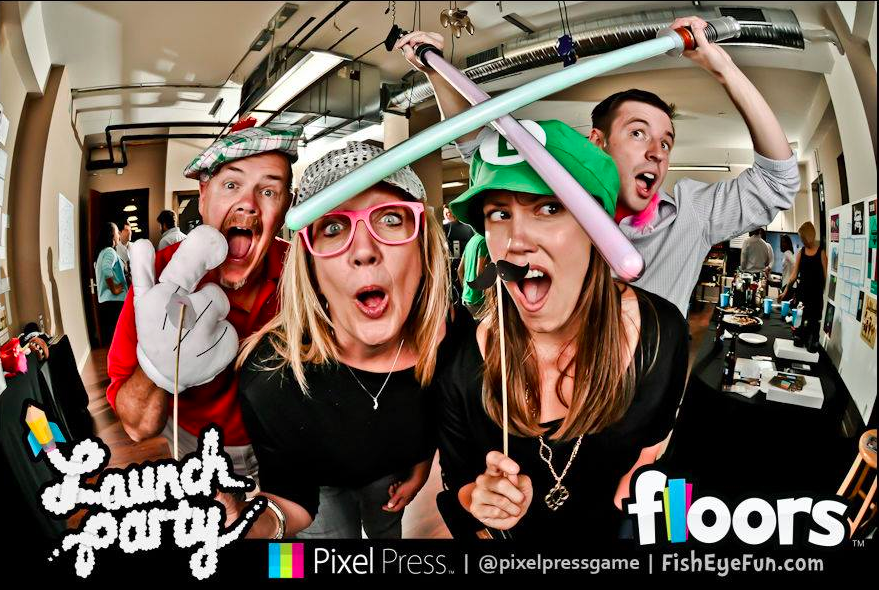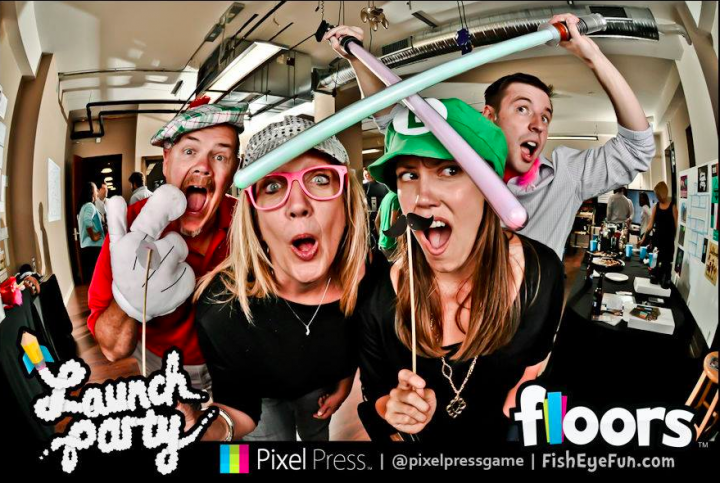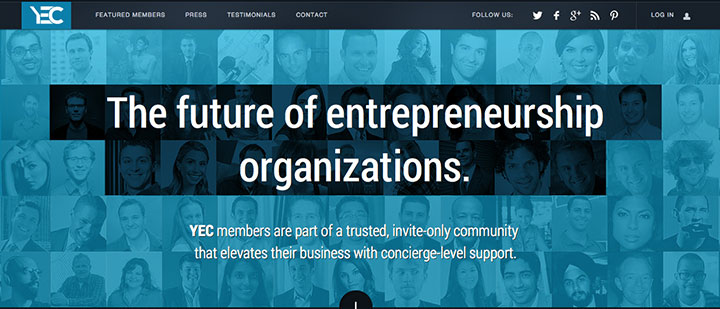Pixel Press c0-founder Robin Rath admits that their launch is both exciting and nerve-wracking. After releasing their app in the iOS appstore, downloads of Pixel Press for iPad exceeded 40,000 downloads alone between April 30th and May 7th.
With graph paper and a key of symbols, kids across the country (and big kids like you and me) will be able to design three levels of a platformer game. After finalizing the placement of coins, spikes, landscapes and other game essentials, simply take a photo with your iPad camera. Pixel Press’ interface then transforms this photo into a game. You can then tweak your layout, choose a hero and select artwork for the elements and background.
If you think it sounds difficult for a program to decipher handwriting, you’re right. Machines aren’t good at picking up on different weights and styles of handwriting. Throw in the variety of ages who will be using Pixel Press, and it gets even more complicated. Pixel Press is using handwriting recognition software, as well as a proprietary program created specifically to recognize the shapes in the key. Over time, the interface will save versions of the symbols in a database that it can access as it learns to recognize the hand-written symbols. This way, results will continue to improve over time.
Pixel Press: Draw Your Own Video Game from Pixel Press on Vimeo.
Growing up in the golden age of the original Nintendo, Rath always wanted to create his own video game. With recent advances in technology and a strong background as a digital entrepreneur, it wasn’t long after the moment of inspiration that he went to work. He made a prototype and shared it with contacts in the industry. Their enthusiasm, combined with palpable interest from the press, confirmed the idea had legs. If there was any room for doubt, the Kickstarter campaign drew $20,000 in its first day and completed its $100,000 goal on day 26 out of 37. (Pixel Press has gone on to raise another $50,000 from Capital Innovators and $100,000 from Angel investor Hal Gentry)
Beyond the idea and the programming, Rath has built a team to create a sustainable business. “The business end is a lot of work,” he admits. “Patents are always more work and cost than you expect.” Additionally, the legalities and structure must be set up properly. Rath applied for a provisional patent before the Kickstarter campaign.
Rath believes in his team and their specialized skills. “It’s always great to build a start-up on one or two people, but we’re trying to stand the test of time.” His team includes people focused on design and development, server and server scaling, game development, an engineer focused on photo recognition and two marketing people. Now, their collective effort is about to debut.
Rath is excited to move past the few hundred users and release Pixel Press to the masses. With the name Pixel Press, this seems like an especially poignant moment, as it reminds me of the printing press. Rath has big plans for continued improvement. The entire interface hinges on a community of users, who can play other people’s levels, ranking them. True to his user experience roots, Rath looks forward to the steady stream of feedback and describes a flow of new features as their top priority after launch. And although it will start out on iOS, taking it to Android is a big priority as well.
As part of their promotions, Rath and his team have taken Pixel Press to schools. In addition to entertainment, there is educational value. More and more, Rath has seen schools embrace the cognitive abilities that video games reinforce: empathy when thinking about the user, problem-solving, and testing solutions. Pixel Press offers teachers a real word example. Grand Center Arts Academy has incorporated Pixel Press into its design thinking lab. Eventually, Rath would like to offer the ability for users to incorporate their own art work, a feature that would increase engagement and have obvious applications for art education.









